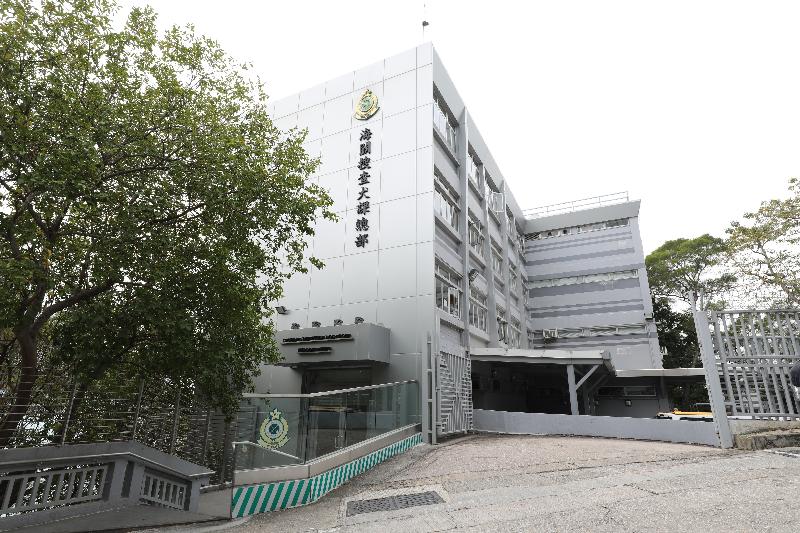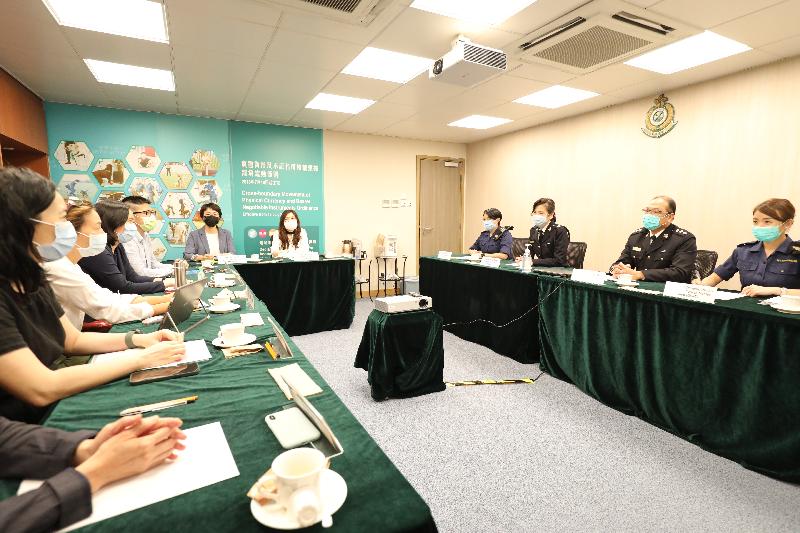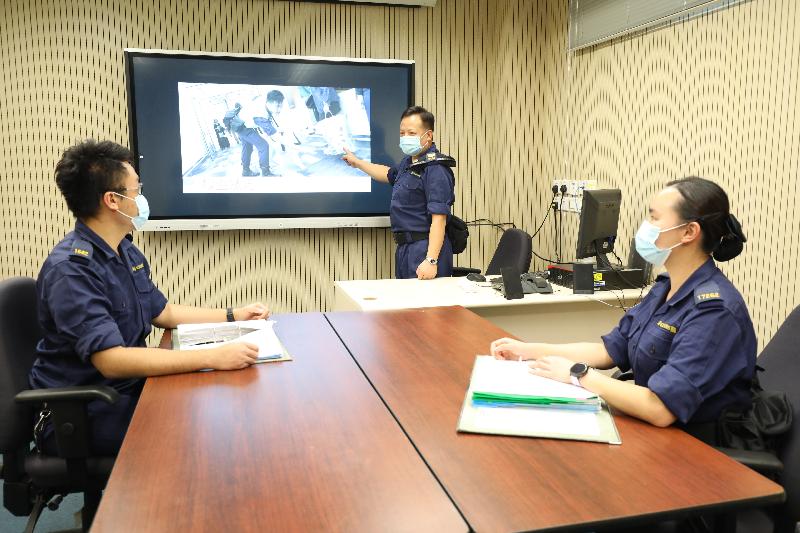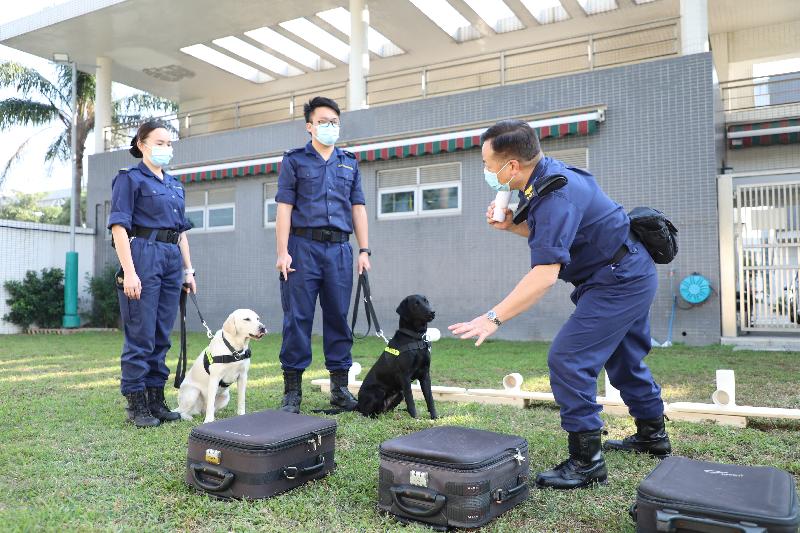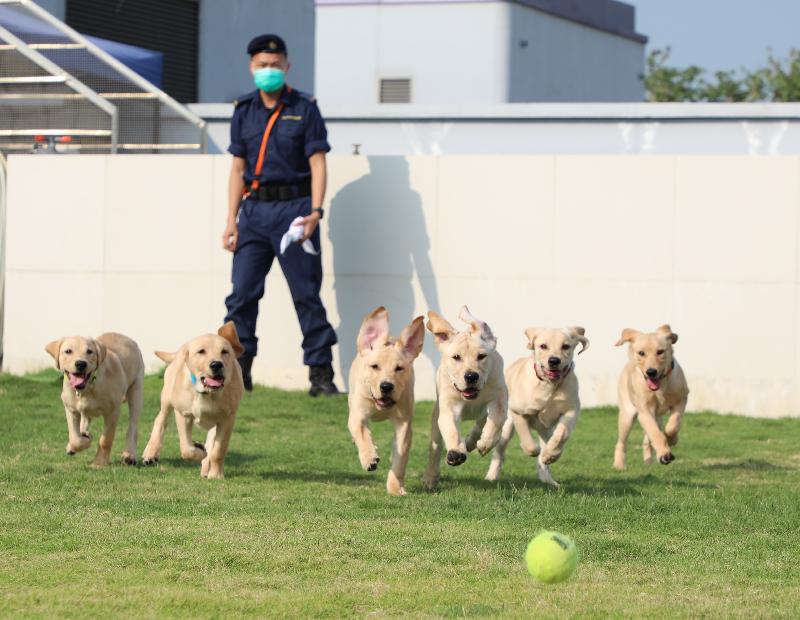Following the tremendous breakthroughs in its canine profession last year, Hong Kong Customs has achieved another breakthrough at the start of the year by obtaining accreditation approval from the Hong Kong Council for Accreditation of Academic and Vocational Qualifications to include its detector dog handling programme in the Qualifications Register (QR). This makes Customs the first law enforcement agency in Hong Kong to offer a Qualifications Framework (QF)-recognised programme in dog handling. It is also the fourth training programme accreditation attained by the department.
The programme, Professional Diploma in Drugs Detector Dog Handling, is accredited at QF Level 4, pitched at the same QF level as a local Associate Degree or a Higher Diploma. It comprises of a 10-week training course to equip the trainees with detector dog handling skills across a broad range of enforcement areas, knowledge on canines and drugs, search principles and integrated skills, with an aim of ensuring their professional standard on enforcement work in performing anti-narcotics duties.
Customs today (January 6) said that the department has all along attached great importance to the professional qualities of dog handlers. The successful registration of Customs' detector dog handler training programme in the QR has realised the professionalisation in detector dogs management. Apart from enhancing officers' abilities in handling all types of challenges in law enforcement, it also helps in developing detector dog management as another branch of professionalism for the department.
The first batch of trainees will graduate from the accredited programme in February 2021. They will become qualified drug detector dog handlers after passing the examination and will be deployed to perform duties in different front-line positions. Leading their detector dogs under the ever-evolving actual environment, they will provide assistance in clearance work for passengers, cargoes and conveyances, in order to strengthen the enforcement results in combating cross-boundary drug trafficking activities.
Well taken care of by officers from the Customs Canine Force (CCF), the first batch of six self-bred Labrador puppies born last July are now growing in good health. Each of them has different characteristics and displays potential for becoming a detector dog. Some of them will undergo the accredited training programme and become drug detector dogs.
The CCF will continue its development under two directions, namely diversification and professionalisation, and actively upgrade the working efficiency of dog handlers and detector dogs.
Follow this news feed: East Asia






